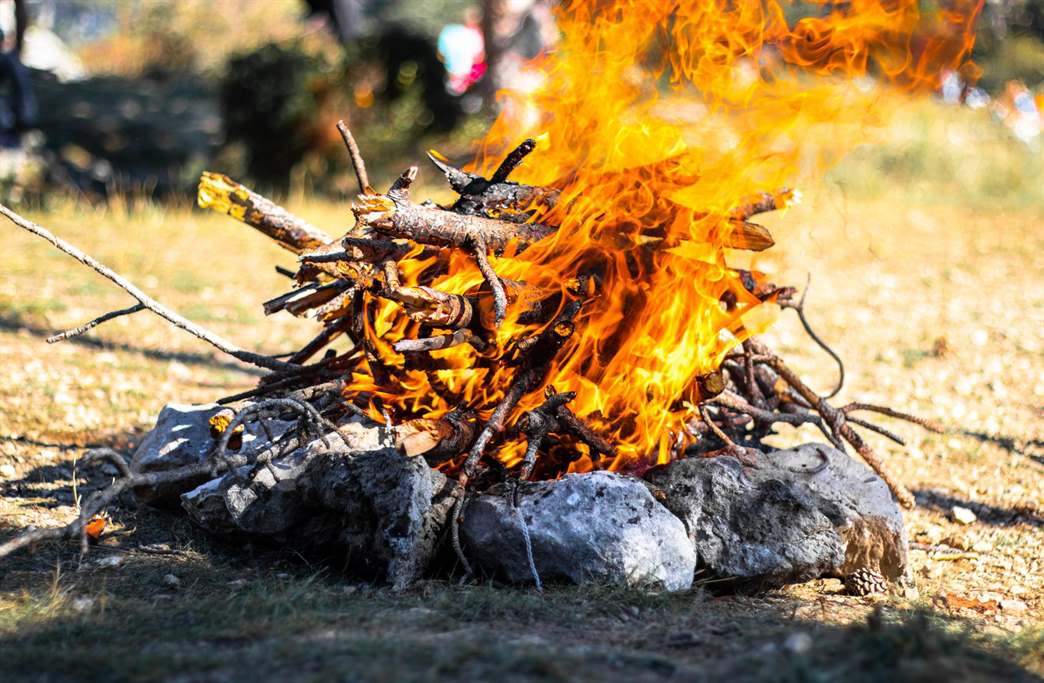News
Fire Restrictions Issued On Crow Indian Reservation

BIA Crow firefighters ask our communities to help prevent wildfires around the Fourth of July holiday, often our busiest weekend of the year.
The Crow Tribe issued “stage 1” fire restrictions Monday evening (June 28th) similar to those already in force for summer in Big Horn and Yellowstone Counties and nearby National Forests.
These restrictions say no open burning or campfires, except for cultural or agricultural uses that call and receive a permit.
Grass is at a tipping point.
Still slightly green, it was not burning fast, but with this week of heat, fires will suddenly spread way quicker than they have this spring.
Fireworks are not prohibited, but they can cause dangerous and costly wildfires, especially this hot week.
Fireworks also spew poisons into the air and grass, and burn people every year.
Any fireworks wildfire on trust (tribal members’) or fee (non-tribal) lands may result in the person who lit it being cited and billed for the cost of fire suppression.
Even small fireworks like sparklers and poppers can start a fire.
With the drought and heat, a small spark may grow several acres in minutes. “We started with mountain fires around here this year, which means the land is extra-dry,” said Randy Pretty On Top, fuels specialist. “Once the grass is brown, we may become really busy.”
“We ask everyone to be extra vigilant and take safety precautions to prevent human-caused wildfires,” said Lee Old Bear, prevention specialist. To reduce the risk:
· Campfires and open burning are now prohibited on the Reservation by Crow Tribe and Big Horn County “Stage 1” fire restrictions, except for cultural or agricultural uses that call in beforehand and get a burn permit at 638-2247. Propane stoves are allowed.
· Only careful adults should ever touch fireworks. Keep grownups, lots of water and a shovel nearby. Use them only where no grass could catch any spark.
· Avoid driving and parking in tall grass. Hot exhaust pipes and catalytic converters can start grass fires in just seconds. Maintain proper tire pressure. Driving on wheel rims can throw sparks.
· Secure chains properly from trailers or equipment. Sparks from dragging chains start grass fires. Carry a shovel, a few gallons of water and a fire extinguisher in your car all summer.
· Mow around homes when it’s cool. Remove any tall grass from your yard.
· Smoking should only be in a closed vehicle or on dirt or pavement, never grass. Use an ashtray!
“Our fire danger already hit Very High,” said Tracy Spang, acting fire management officer. “It’s critical to keep respect for fire – stop it before it starts.”
Even with rain this past week, our grass and timber are still drier than average for July 1, closer to conditions found in late July or August.
High temperatures reach 100 degrees Thursday through Saturday and continue in the high 90s in the week after July 4.
“Fourth of July is a popular weekend to get outdoors,” Old Bear said. “We want everyone to have a happy, healthy, and safe holiday weekend. That starts by all of us helping. Call 911 when you see someone being unsafe with fire.”

